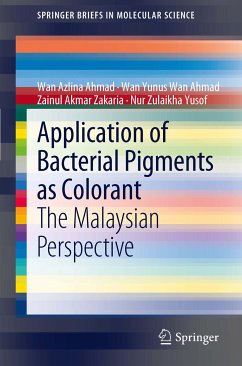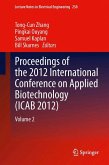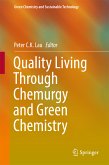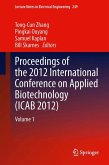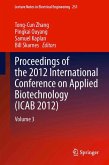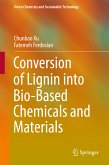Environmental concerns regarding continuous use of synthetic dyes saw a revival in the demand for natural dyes as natural dyes exhibit better biodegradability and generally have a higher compatibility with the environment. However, one of the limitations on the use of natural dyes or pigments is the low extraction yield factors (a few grams of pigment per kg of dried raw material). Therefore, the exploitation of other biological sources such as fungi, bacteria and cell cultures offers interesting alternative. Microbial pigments such as from bacterial origins offer the advantage in terms of production compared to pigments extracted from vegetables or animals, due to its simple cell and fast culturing technique. This book offers interesting insight into initial works carried out to demonstrate the potential use of bacterial pigment as colorant for various applications.
Dieser Download kann aus rechtlichen Gründen nur mit Rechnungsadresse in A, B, BG, CY, CZ, D, DK, EW, E, FIN, F, GR, HR, H, IRL, I, LT, L, LR, M, NL, PL, P, R, S, SLO, SK ausgeliefert werden.

